
Today, nearly 40 million Americans struggle with diabetes – a number that grows each year. With diabetes on the rise, many people are looking for safe and natural ways to complement their diabetes treatment and keep blood sugar balanced. If that’s you (or you want to prevent diabetes), Chinese herbs for blood sugar control might be the answer you’re looking for.
Traditional Chinese Medicine (TCM) has helped manage the symptoms of diabetes and blood sugar imbalances for centuries. Let’s explore how TCM can help you manage your blood sugar better with the power of Chinese herbs for diabetes.
What is Diabetes?
Diabetes is a complex and chronic medical condition where blood sugar levels fall out of balance. There are two different types of diabetes:
- Type 1 Diabetes
This form of diabetes is considered an autoimmune disease that typically begins at a young age. In Type 1 diabetes, the body’s immune system mistakenly attacks and destroys the insulin-producing beta cells in the pancreas. As a result, individuals with Type 1 diabetes need to take insulin injections to regulate their blood sugar levels.
- Type 2 Diabetes
Type 2 diabetes is the more common form of diabetes, and usually develops in adulthood. In this type, the body either doesn’t produce enough insulin or becomes resistant to its effects due to lifestyle factors (especially diet and lack of physical exercise).
A Closer Look at Blood Sugar Balance
Blood sugar, or glucose, is a fundamental component of our body’s energy system. Glucose is produced from the food we eat and carried by the bloodstream to fuel our cells. Without glucose, we wouldn’t be able to function.
But, you can have too much glucose in your bloodstream. That’s where insulin comes in. Insulin is a hormone secreted by the pancreas that acts like a key – it unlocks cells, allowing glucose to enter and be used for energy.
If you have diabetes, this delicate balance is disrupted. In Type 1 diabetes, insulin production is minimal or absent, leading to high blood sugar levels. In Type 2 diabetes, the body produces insulin but the cells have become resistant to its effects (insulin resistance), which also causes blood sugar to rise.
The Consequences of Unmanaged Diabetes
Managing diabetes is not just a matter of keeping blood sugar levels in check; it’s about preserving your overall health and well-being. Uncontrolled diabetes can have severe consequences, including:
- Heart Disease
High blood sugar can damage blood vessels, increasing the risk of heart disease, stroke, and hypertension.
- Neuropathy
Nerve damage can lead to pain, tingling, or numbness in the extremities.
- Retinopathy
Uncontrolled diabetes can cause vision problems, including diabetic retinopathy.
- Nephropathy
Kidney damage is a significant concern, potentially leading to kidney failure.
As you can see, getting a holistic treatment plan for diabetes is essential – not just for preventing your current symptoms, but for preventing more serious issues in the future.
Diabetes vs. Blood Sugar Control: What’s the Difference?
It’s important to note that you don’t necessarily have to be diagnosed with diabetes to benefit from blood sugar management. Maintaining healthy blood sugar levels is a fundamental aspect of overall well-being. Even individuals who do not have diabetes can experience energy fluctuations, mood swings, weight gain, and long-term health consequences if their blood sugar levels are consistently imbalanced.
Diabetes Treatments: The Conventional Approach
Conventional medicine offers several approaches to managing diabetes, depending on the type and severity of the condition.
For those with Type 1 diabetes, insulin therapy is an essential part of treatment. This is typically done through injections or insulin pumps.
In the case of Type 2 diabetes, treatment often begins with lifestyle modifications, including dietary changes, increased physical activity, and even natural approaches like Chinese herbal medicine.
Oral medications or injectable insulin (if necessary) may be prescribed to help control blood sugar levels. While conventional medicine is often necessary to maintain safe blood sugar levels, adding in complementary approaches can help you maintain a healthier balance and even reduce your need for medications in the future.
So, how can complementary approaches (such as Traditional Chinese Medicine and herbal supplements) enhance your overall health and well-being through blood sugar balance?
Diabetes & Traditional Chinese Medicine
Traditional Chinese Medicine (TCM) is an ancient and comprehensive system of healthcare that has been practiced for thousands of years. It revolves around a holistic philosophy that views the body as an interconnected system, where balance and harmony are essential for optimal health.
Like Western medicine, TCM also sees diet and lifestyle as key causes of diabetes and poor blood sugar regulation. But, TCM takes a slightly different approach to diabetes (and other illnesses) than Western medicine. Rather than focusing only on specific symptoms or organs (such as the pancreas), TCM aims to rebalance the entire body to restore healthy blood sugar and overall health.
Diabetes: Yin & Yang Imbalance
Most basically, TCM views diabetes as an imbalance in the Yin and Yang energies of the body:
- Excess Yang Heat
High blood sugar levels may indicate an excess of heat and Yang energy if accompanied by other excess heat signs (like redness, sweating, thirst, and generally feeling hot).
- Yin Deficiency Heat
Heat can also come from a lack of coolness, which is attributed to Yin. Those with Yyin deficiency-type diabetes typically have other “deficient” signs, like fatigue and frequent urination.
Diabetes: Upper, Middle, and Lower Type
Another way TCM looks at diabetes conditions is by distinct types: upper, middle, and lower “Xiao-ke.” Each of these types presents unique and characteristic symptoms:
- The upper type is associated with excessive thirst (related to Lung imbalance).
- The middle with ravenous hunger (related to Stomach/Spleen/Pancreas imbalance).
- The lower with frequent urination (related to Kidney imbalance).
While each type has its own characteristics, most people in our modern age have signs of all three, and all three types can be addressed through Chinese herbal medicine.
Chinese Herbs for Diabetes: What Does the Research Say?
While TCM has used herbal medicine to manage diabetes and blood sugar disorders for thousands of years, modern medicine is starting to understand the benefits. Today, researchers are actively studying Chinese herbs to find out why they work and how we can use them more effectively. Here’s what the research says about Chinese herbs and blood sugar control:
- Some Chinese herbs can enhance insulin sensitivity.
Herbs like cinnamon and ginseng have demonstrated the ability to increase the body’s responsiveness to insulin, making it more effective at regulating blood sugar levels.
- Some Chinese herbs can promote glucose uptake.
Bitter melon has compounds that encourage the uptake of glucose by cells for energy, which lowers blood sugar levels.
- Some Chinese herbs can slow sugar absorption.
Herbs high in soluble fiber (like fenugreek) can delay the absorption of sugars during digestion, preventing rapid spikes in blood sugar.
- Some Chinese herbs can reduce inflammation.
Anti-inflammatory herbs like Chinese Skullcap can reduce inflammation and oxidative stress, which may contribute to better blood sugar control and “anti-diabetic” effects.
The Best Chinese Herbs for Diabetes and Blood Sugar Control
TCM uses a range of modalities to address diabetes, from acupuncture to qi gong exercise to diet therapy. Chinese herbal formulas, however, may be one of the most important. Let’s take a look at how Chinese herbs support healthy blood sugar control:
Chinese Herbs & Adaptogens for Blood Sugar Control
There are several Chinese herbs known for managing diabetes. These herbs have been used for generations due to their ability to address imbalances related to blood sugar and insulin regulation. Here are a few of the most commonly used herbs:
- Bitter Melon (Ku Gua)
Bitter Melon, also known as Momordica charantia, is a unique, tropical fruit commonly used in TCM. It is well-regarded for its bitter taste and its potential to help lower blood sugar levels. Bitter Melon contains compounds that mimic insulin’s action, aiding in glucose uptake by cells.
- Cinnamon (Rou Gui)
Cinnamon is a popular spice in both Chinese and Western herbal traditions. It is known for its potential to improve insulin sensitivity and lower blood sugar levels, making it a valuable addition to diabetes management.
- Ginseng (Ren Shen)
Ginseng, particularly Panax ginseng and American ginseng, has been traditionally used to enhance energy and vitality in TCM. Recent research suggests that it may also help regulate blood sugar levels, improving insulin sensitivity.
- Astragalus (Huang Qi)
Astragalus is a popular adaptogen known for its immune and energy-boosting properties. It is believed to support overall health, potentially including blood sugar regulation.
- Fenugreek (Hu Lu Ba)
Fenugreek is a spice and herb used in TCM. It contains soluble fiber that can help slow down the absorption of sugar in the digestive tract, potentially stabilizing blood sugar levels.
- Chinese Skullcap (Huang Qin)
Chinese Skullcap, or Scutellaria baicalensis, is traditionally used to address a range of health issues. Some research suggests it may play a role in blood sugar management, possibly by reducing inflammation and oxidative stress.
The Best Chinese Herb Formulas for Diabetes
While there are some superstar Chinese herbs for diabetes, Chinese herbal medicine rarely recommends taking just a single herb. Rather, comprehensive and balanced formulas where ingredients work together can offer better overall results. Here are some of the TCM formulas known to support diabetes management and reduce symptoms:
The Best Chinese Herbs for Overall Diabetes Support
Liu Wei Di Huang Wan Capsules or Liquid Tincture
One of the most popular formulas for diabetes management is the classic formula Liu Wei Di Huang Wan. This formula helps restore the deficient Yin common in diabetes and is helpful in managing blood sugar levels, neuropathy, and kidney-related issues. It also helps reduce inflammation to help relieve pain and neuropathy.
Whereas Liu Wei Di Huang Wan focuses on nourishing Yin, Jin Gui Shen Qi Wan focuses on restoring Qi and Yang to alleviate diabetic symptoms like frequent urination, fatigue, weakness, and constantly feeling cold.
Wu Ling San is a special blend of five different herbs that help your body manage excess water. This formula is particularly useful for those with excess swelling and urinary issues. Research shows it can be beneficial for diabetes and kidney-related problems.
Mai Wei Di Huang Wan is a Lung and Kidney-nourishing formula that supports those with diabetes and dry symptoms (like thirst, dry mouth, dry cough, dry throat, or dry nasal passages).
The Best Chinese Herbs for Diabetic retinopathy (diabetic eye disease)
Ming Mu Di Huang Wan (Visex Extract) contains a blend of herbs specifically designed to improve eyesight by nourishing two main organs that are energetically responsible for vision — the Liver and Kidney. It can support overall eye health if your vision has become compromised due to diabetes.
Babao boyun san is a topical formula that can be used as an eyedrop for eye conditions. It is particularly helpful for those with diabetic hypertensive eye conditions but can support a range of chronic eye conditions.
-
Sale!
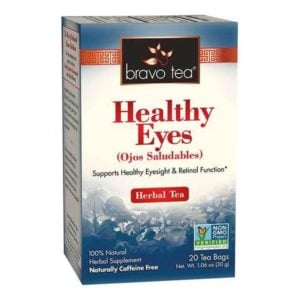 Healthy Eyes Tea – by Bravo Tea
Starting at $6.99
Add to CartSelect options
This product has multiple variants. The options may be chosen on the product page
Healthy Eyes Tea – by Bravo Tea
Starting at $6.99
Add to CartSelect options
This product has multiple variants. The options may be chosen on the product page
Support your eye health and prevent diabetic retinopathy with a daily dose of Healthy Eyes tea. This wellness tea contains nutrients and antioxidants known to support eye health and function.
The Best Chinese Herbs for Diabetic Neuropathy Support
Du huo ji sheng wan is a go-to formula for lower-body musculoskeletal pain that worsens in damp or cold weather. Because of its tonic properties, this formula is also a great way to encourage healthy blood flow and nerve function in the case of diabetic neuropathy (especially with pain or numbness in the feet and legs).
Hong Hoa oil is an external analgesic that is often used for fast relief of muscle pain. The oil is warming, with a high content of herbal medication (methyl salicylate) and cinnamon to encourage circulation in the affected area. For diabetic neuropathy, apply to the soles of the feet, or use a few drops in a warming Epsom salt foot bath.
The Best Chinese Herbs for Appetite and Sugar Craving Control
Real Mushrooms Chaga Mushroom Powder or Capsules
If you have Type 2 diabetes, incorporating chaga mushroom into your routine may aid in lowering blood sugar levels and enhancing insulin sensitivity. Chaga is a medicinal mushroom and adaptogen that supports blood sugar balance, enhances digestion, and supports general gut health.
-
Sale!
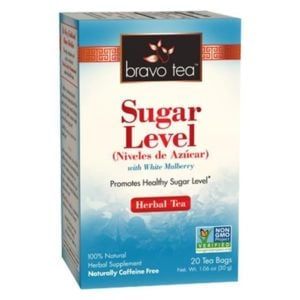 Sugar Level Tea – by Bravo Tea
Starting at $6.99
Add to CartSelect options
This product has multiple variants. The options may be chosen on the product page
Sugar Level Tea – by Bravo Tea
Starting at $6.99
Add to CartSelect options
This product has multiple variants. The options may be chosen on the product page
Swap your coffee habit with Sugar Level Tea to keep blood sugar levels in balance. Sugar Level Tea is a Chinese herbal tea that helps increase your insulin sensitivity to reduce diabetes symptoms and support healthy metabolic function. This tea can also help keep sugar cravings at bay and support healthy weight loss!
Get Diabetes Under Control with Chinese Herbal Medicine
Diabetes is a complex and serious condition, but with Chinese herbal medicine, you can find your balance. Powerful herbal formulas give you the natural tools you need to proactively manage your diabetes, improve your overall health, and still enjoy life to the fullest. Shop the formulas above to achieve a healthy blood sugar balance, or explore our other herbal collections for metabolism, weight management, and immune support.


 Liu Wei Di Huang Tang (Rehmannia Six) – Liquid Extract (Tincture)
Liu Wei Di Huang Tang (Rehmannia Six) – Liquid Extract (Tincture)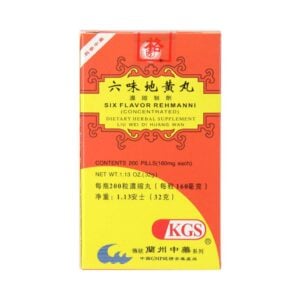 Liu Wei Di Huang Wan – Six Flavor Rehmanni – Lanzhou Traditional Herbs (KGS)
Liu Wei Di Huang Wan – Six Flavor Rehmanni – Lanzhou Traditional Herbs (KGS) Jin Gui Shen Qi Tang (Golden Cabinet) – Liquid Extract (Tincture)
Jin Gui Shen Qi Tang (Golden Cabinet) – Liquid Extract (Tincture)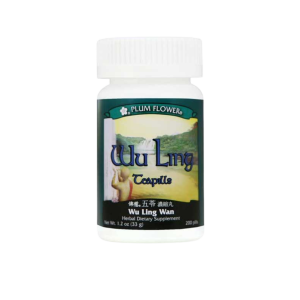 Plum Flower – Wu Ling Wan (Teapills)
Plum Flower – Wu Ling Wan (Teapills)
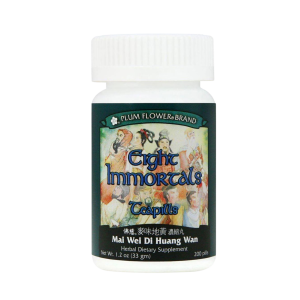 Plum Flower – Eight Immortals (Mai Wei Di Huang Wan)
Plum Flower – Eight Immortals (Mai Wei Di Huang Wan)
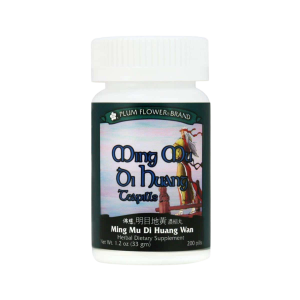 Plum Flower – Ming Mu Di Huang Wan – (OUT OF STOCK)
Plum Flower – Ming Mu Di Huang Wan – (OUT OF STOCK) Babao Boyun San (Ba Bao Bo Yun San) – for Eyes
Babao Boyun San (Ba Bao Bo Yun San) – for Eyes
 Du Huo Ji Sheng Tang (Solitary Hermit) – Liquid Extract (Tincture)
Du Huo Ji Sheng Tang (Solitary Hermit) – Liquid Extract (Tincture) Chaga Mushroom Powder by Real Mushrooms
Chaga Mushroom Powder by Real Mushrooms